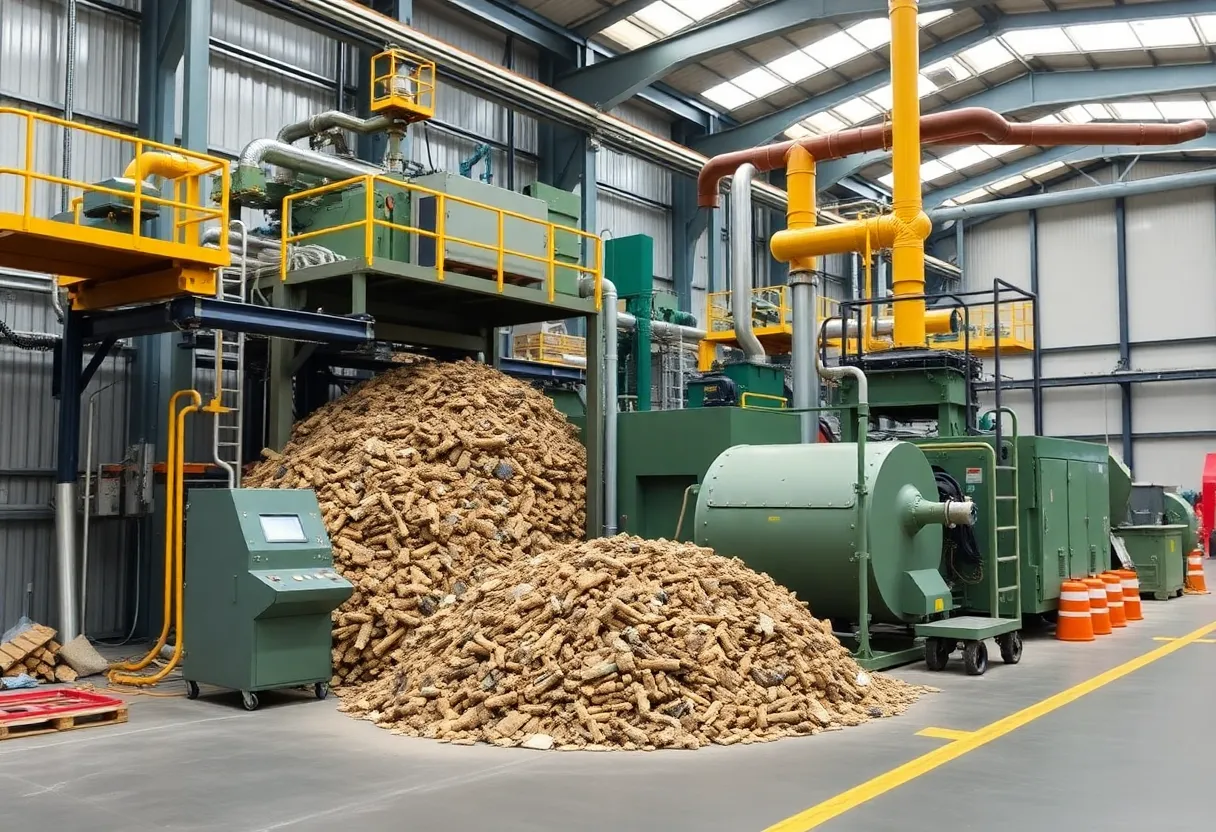News Summary
A Dutch company, Asbeter, is pioneering a revolutionary process to recycle asbestos waste into non-toxic materials, aiming to mitigate health risks and environmental concerns.
Innovative Asbestos Recycling Could Transform Waste Management
Asbestos has long been known for its devastating health effects, leading to the emergence of serious conditions such as mesothelioma and asbestosis. As a result, its use has been banned across the European Union and the United States. However, a revolutionary approach is being pioneered by a Dutch company that may change the dialogue surrounding asbestos waste management. Asbeter, based in Rotterdam, claims to have developed an innovative process to recycle asbestos waste into a usable, non-toxic product.
Turning Hazard into Resource
Asbeter aims to tackle the issue of asbestos waste head-on. The company has created a technique that involves heating, shredding, and mixing asbestos-containing materials with water to form a slurry. This unique recycling method purportedly neutralizes harmful asbestos fibers, allowing them to be transformed into calcium silicate hydrate, which can be used in various construction and paint applications.
Despite its known dangers, many countries continue to utilize asbestos in construction, resulting in a global market valued at over $1 billion as of 2023. Notably, India remains the world’s largest importer, while Russia leads as the top exporter. Asbestos is still present in about 70% of buildings in Ukraine, creating significant challenges, especially amid the aftermath of ongoing conflict.
The Asbeter Initiative
Asbeter’s main focus is currently on recycling asbestos from cement roofing sheets, with future plans to expand to other applications, including water pipes. The company has set ambitious goals to establish a full-scale processing plant by 2026, capable of treating up to 33,000 tons of asbestos waste each year. This initiative could significantly reduce the amount of hazardous materials ending up in landfills, where fibers pose environmental risks by escaping into the air and water supply.
Production Costs and Industry Concerns
The cost of recycling asbestos is approximately three times higher than traditional disposal methods, a point of contention for many industry stakeholders. However, the potential benefits of transforming hazardous waste into valuable materials such as “glassphalt” for roadways and “glasscrete” for construction could justify the investment in the long term. Recent recycling methods, including microwave thermal treatments and high-speed milling, are also being explored to enhance the efficiency of asbestos fiber neutralization.
Health Concerns and Regulatory Landscape
The health risks associated with asbestos exposure remain significant, with approximately 255,000 deaths occurring worldwide each year due to related diseases. This grim statistic highlights the urgency for effective asbestos management policies, particularly as the U.S. government moves towards finalizing a ban on chrysotile asbestos, the primary type still being imported.
In conjunction with this, countries like France and Poland are enacting stricter regulations to ensure the safe removal and management of asbestos. However, these efforts often fall short due to poor infrastructure and outdated policies, leading to merely relocating the material to landfills instead of achieving genuine abatement.
Future Directions in Asbestos Management
Asbeter has received an end-of-waste certificate from the Dutch government’s environmental agency, reflecting its commitment to transforming hazardous materials into safe alternatives for construction. This kind of innovation is crucial as authorities worldwide search for more effective methods to manage asbestos contaminants, including exploring bioremediation techniques.
Ultimately, while the dangers of asbestos are well-documented, initiatives like Asbeter’s recycling process could herald a new age in waste management strategies. By turning hazardous materials into non-toxic solutions, there is hope for a future where our environment is safer and healthier.
Deeper Dive: News & Info About This Topic
HERE Resources
How to Support a Loved One with Mesothelioma
Urgent Call to Action: Mesothelioma Research at Risk!
Game-Changer for Cancer Survivors: Pickleball at Moffitt Cancer Center
Rising Awareness of Mesothelioma Risks for Auto-Truck Mechanics in Florida
Approval Granted for Replacement of Asbestos-Laden Industrial Unit in Reading
The Ongoing Struggle with Asbestos-Related Diagnoses
Obsequio Group Expands Asbestos Compliance Services
Community Shock as Local Man Dies from Asbestos Illness
Family Appeals for Witnesses in Asbestos-Related Death
New Legislative Changes Threaten Compensation for Mesothelioma Victims
Additional Resources
- Asbestos.com: Dutch Company Claims Asbestos Removal from Building Materials
- Wikipedia: Asbestos
- BBC Future: How to Get Rid of Asbestos – Global Waste Problem
- Google Search: Asbestos Recycling
- DW: Can Asbestos Waste Be Recycled?
- Encyclopedia Britannica: Asbestosis
- Euronews: Could Recycling Rubble Contaminated With Asbestos Be Dangerous for Ukrainians?
- Google Scholar: Asbestos Management



















